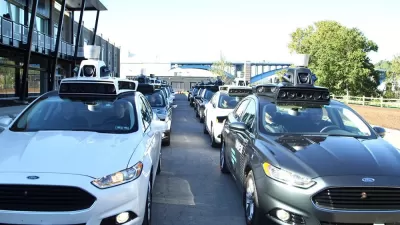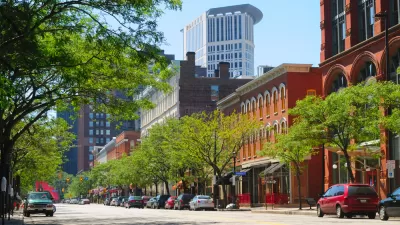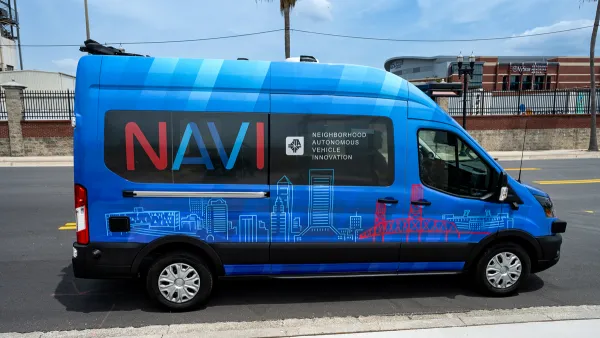Ten principles developed by international non-governmental organizations are designed to guide urban decision-makers toward the best outcomes for the transition to new mobility options.
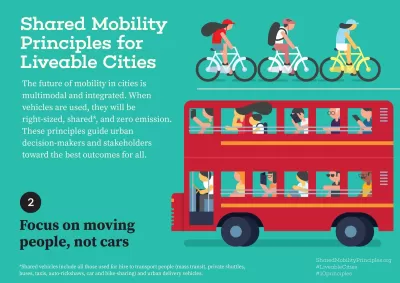
Sustainable, inclusive, prosperous, and resilient cities depend on transportation that facilitates the safe, efficient and pollution-free flow of people and goods, while also providing affordable, healthy, and integrated mobility for all. Innovative shared and autonomous transportation services can have profound impacts on community quality of life and resident's access to opportunity.
A new international working group developed the following ten principles to guide urban decision-makers and stakeholders toward the best outcomes for the transition to new mobility options.
- We plan our cities and their mobility together. The way our cities are built determines mobility needs and how they can be met. Development, urban design and public spaces, building and zoning regulations, parking requirements, and other land use policies shall incentivize compact, accessible, livable, and sustainable cities.
- We prioritize people over vehicles. The mobility of people and not vehicles shall be in the center of transportation planning and decision-making. Cities shall prioritize walking, cycling, public transport and other efficient shared mobility, as well as their interconnectivity. Cities shall discourage the use of cars, single-passenger taxis, and other oversized vehicles transporting one person.
- We support the shared and efficient use of vehicles, lanes, curbs, and land. Transportation and land use planning and policies should minimize the street and parking space used per person and maximize the use of each vehicle. We discourage overbuilding and oversized vehicles and infrastructure, as well as the oversupply of parking.
- We engage with stakeholders. Residents, workers, businesses, and other stakeholders may feel direct impacts on their lives, their investments and their economic livelihoods by the unfolding transition to shared, zero-emission, and ultimately autonomous vehicles. We commit to actively engage these groups in the decision-making process and support them as we move through this transition.
- We promote equity. Physical, digital, and financial access to shared transport services are valuable public goods and need thoughtful design to ensure use is possible and affordable by all ages, genders, incomes, and abilities.
- We lead the transition towards a zero-emission future and renewable energy. Public transportation and shared-use fleets will accelerate the transition to zero-emission vehicles. Electric vehicles shall ultimately be powered by renewable energy to maximize climate and air quality benefits.
- We support fair user fees across all modes. Every vehicle and mode should pay their fair share for road use, congestion, pollution, and use of curb space. The fair share shall take the operating, maintenance and social costs into account.
- We aim for public benefits via open data. The data infrastructure underpinning shared transport services must enable interoperability, competition and innovation, while ensuring privacy, security, and accountability.
- We work towards integration and seamless connectivity. All transportation services should be integrated and thoughtfully planned across operators, geographies, and complementary modes. Seamless trips should be facilitated via physical connections, interoperable payments, and combined information. Every opportunity should be taken to enhance connectivity of people and vehicles to wireless networks.
- We support that autonomous vehicles in dense urban areas should be operated only in shared fleets. Due to the transformational potential of autonomous vehicle technology, it is critical that all AVs are part of shared fleets, well-regulated, and zero emission. Shared fleets can provide more affordable access to all, maximize public safety and emissions benefits, ensure that maintenance and software upgrades are managed by professionals, and actualize the promise of reductions in vehicles, parking, and congestion, in line with broader policy trends to reduce the use of personal cars in dense urban areas.
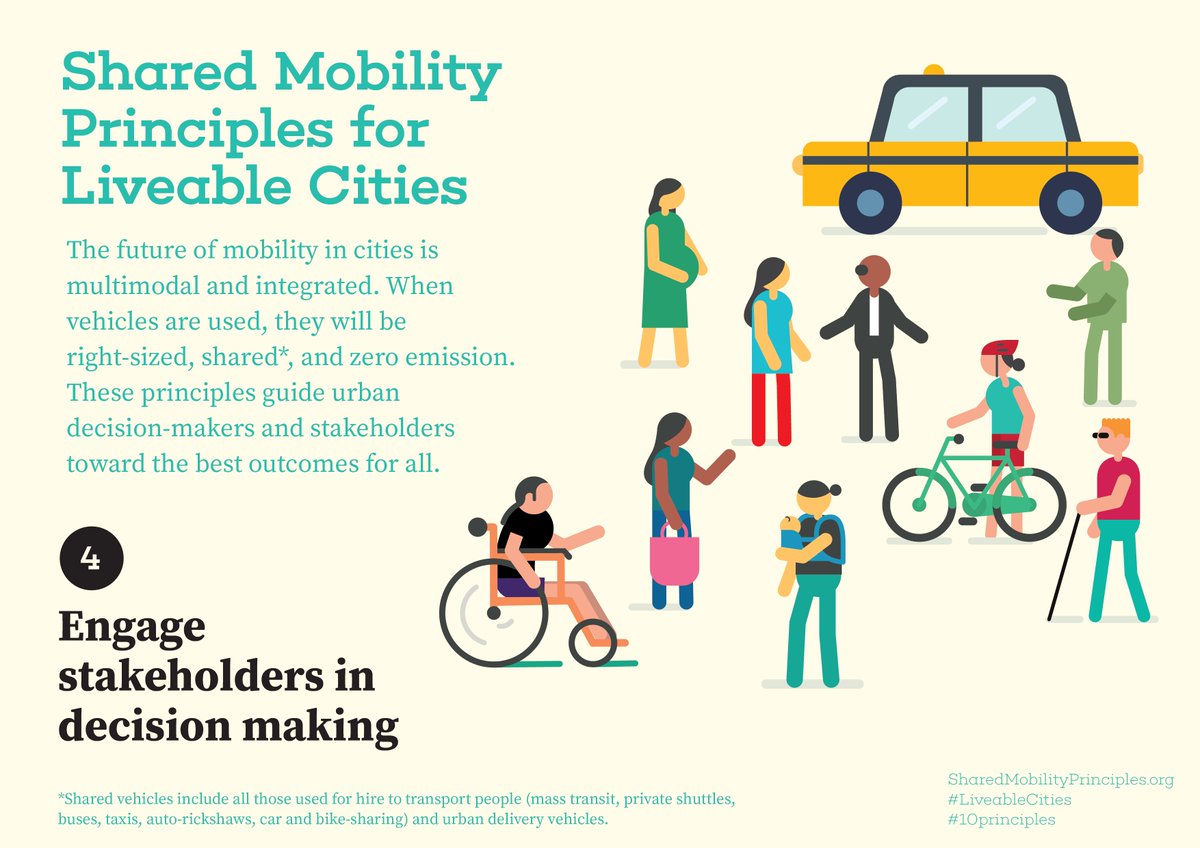
FULL STORY: Shared Mobility Principles for Livable Cities

Maui's Vacation Rental Debate Turns Ugly
Verbal attacks, misinformation campaigns and fistfights plague a high-stakes debate to convert thousands of vacation rentals into long-term housing.

Planetizen Federal Action Tracker
A weekly monitor of how Trump’s orders and actions are impacting planners and planning in America.

In Urban Planning, AI Prompting Could be the New Design Thinking
Creativity has long been key to great urban design. What if we see AI as our new creative partner?

King County Supportive Housing Program Offers Hope for Unhoused Residents
The county is taking a ‘Housing First’ approach that prioritizes getting people into housing, then offering wraparound supportive services.

Researchers Use AI to Get Clearer Picture of US Housing
Analysts are using artificial intelligence to supercharge their research by allowing them to comb through data faster. Though these AI tools can be error prone, they save time and housing researchers are optimistic about the future.

Making Shared Micromobility More Inclusive
Cities and shared mobility system operators can do more to include people with disabilities in planning and operations, per a new report.
Urban Design for Planners 1: Software Tools
This six-course series explores essential urban design concepts using open source software and equips planners with the tools they need to participate fully in the urban design process.
Planning for Universal Design
Learn the tools for implementing Universal Design in planning regulations.
planning NEXT
Appalachian Highlands Housing Partners
Mpact (founded as Rail~Volution)
City of Camden Redevelopment Agency
City of Astoria
City of Portland
City of Laramie


























